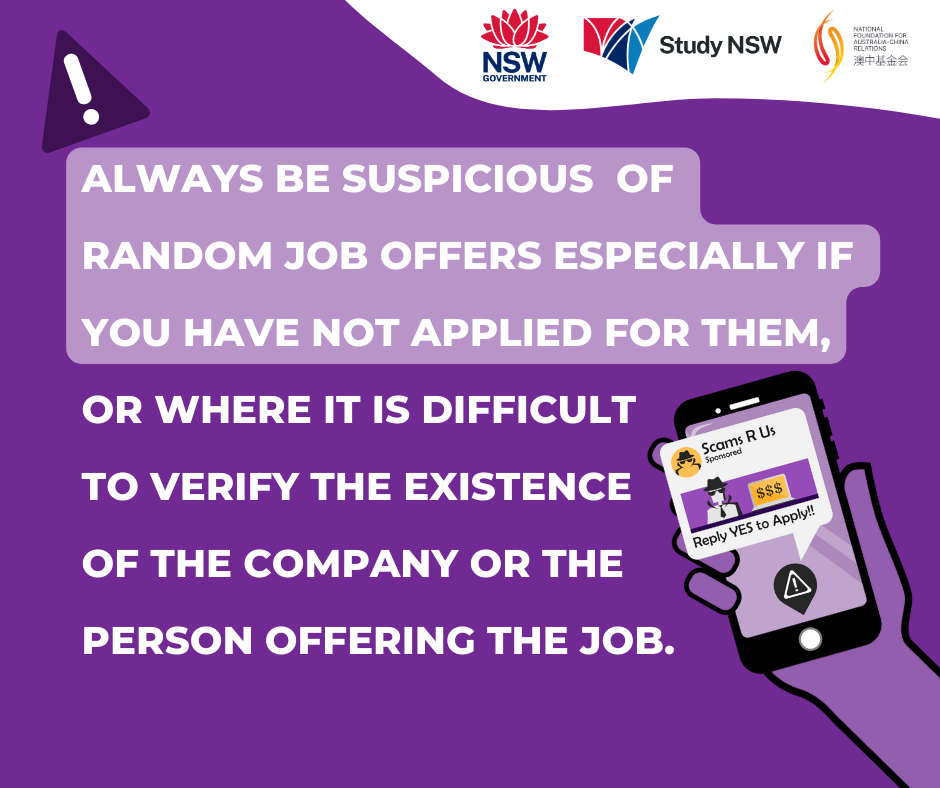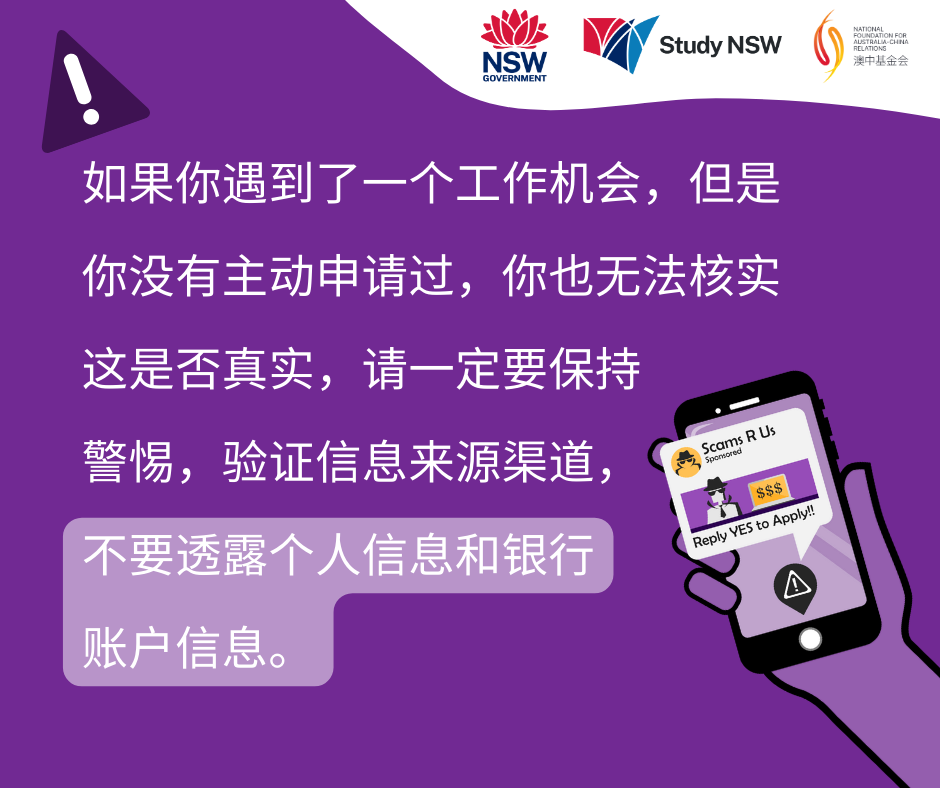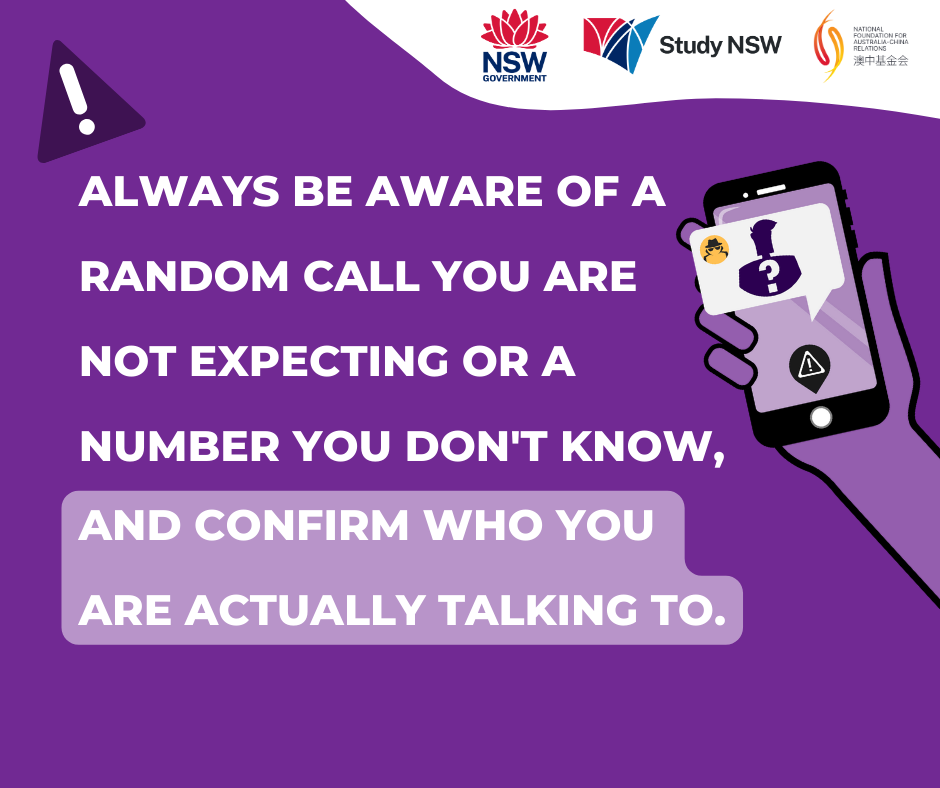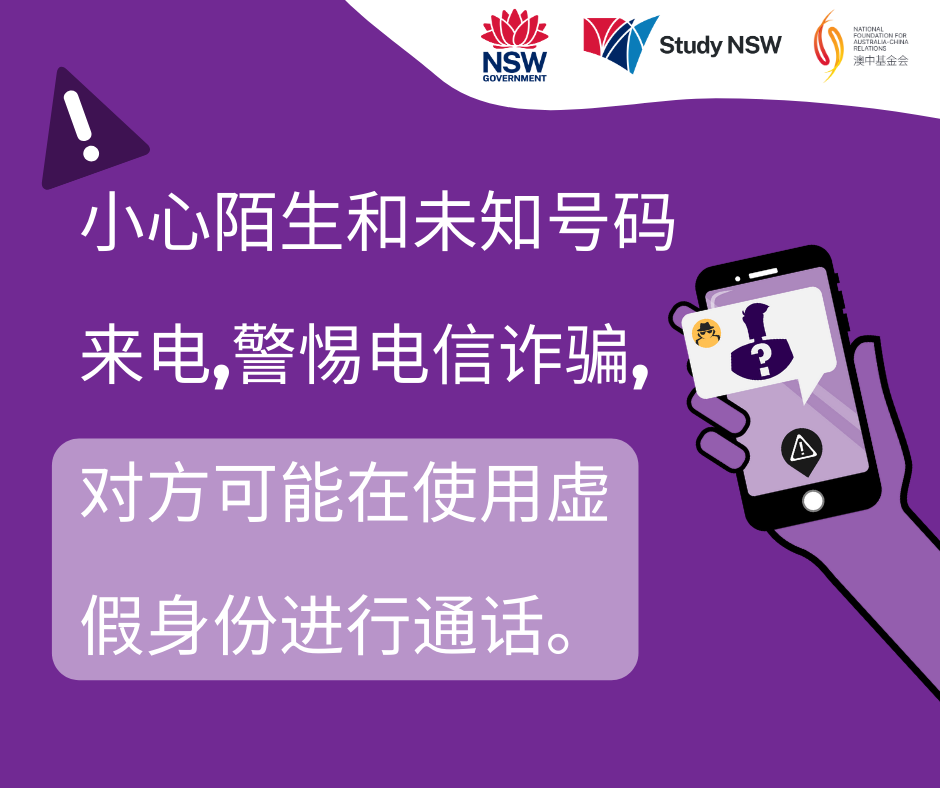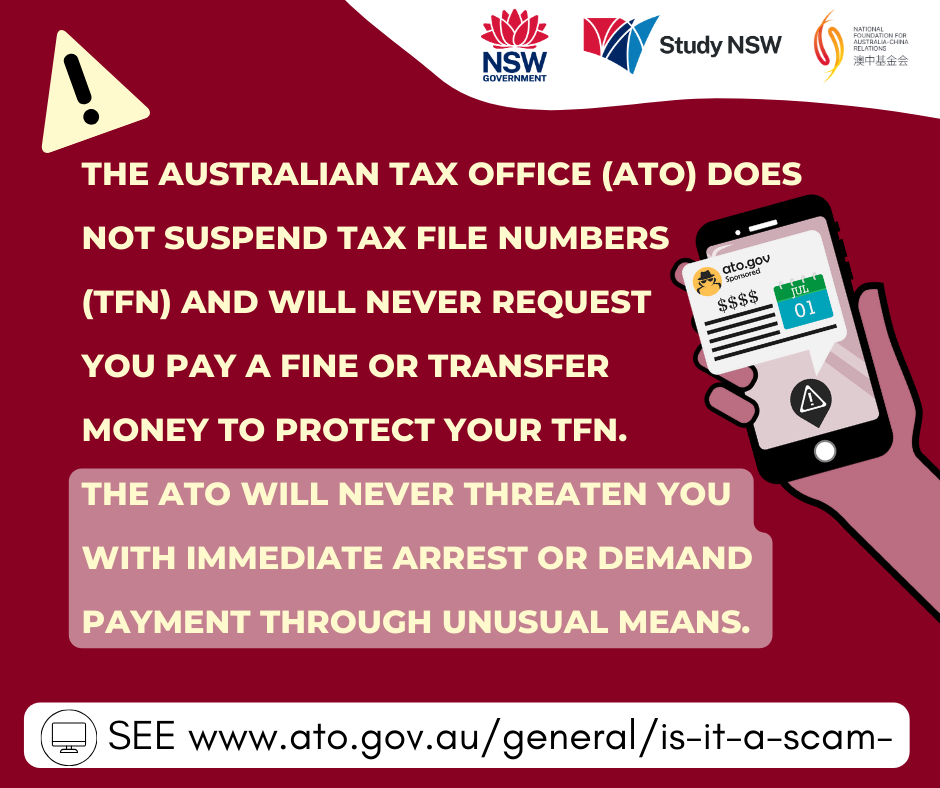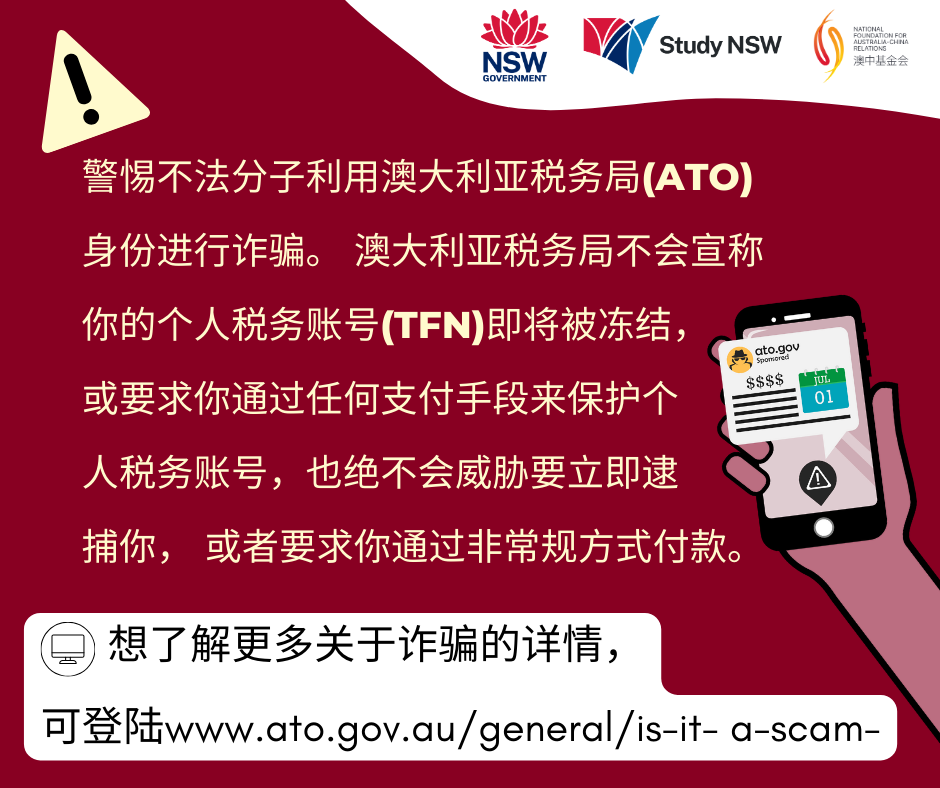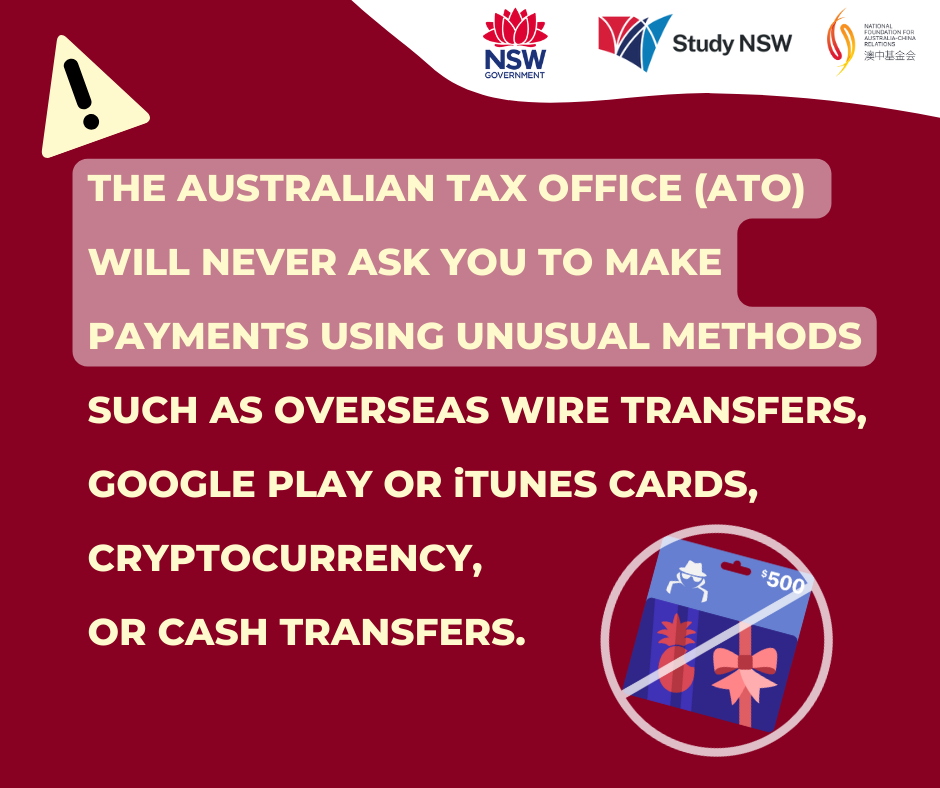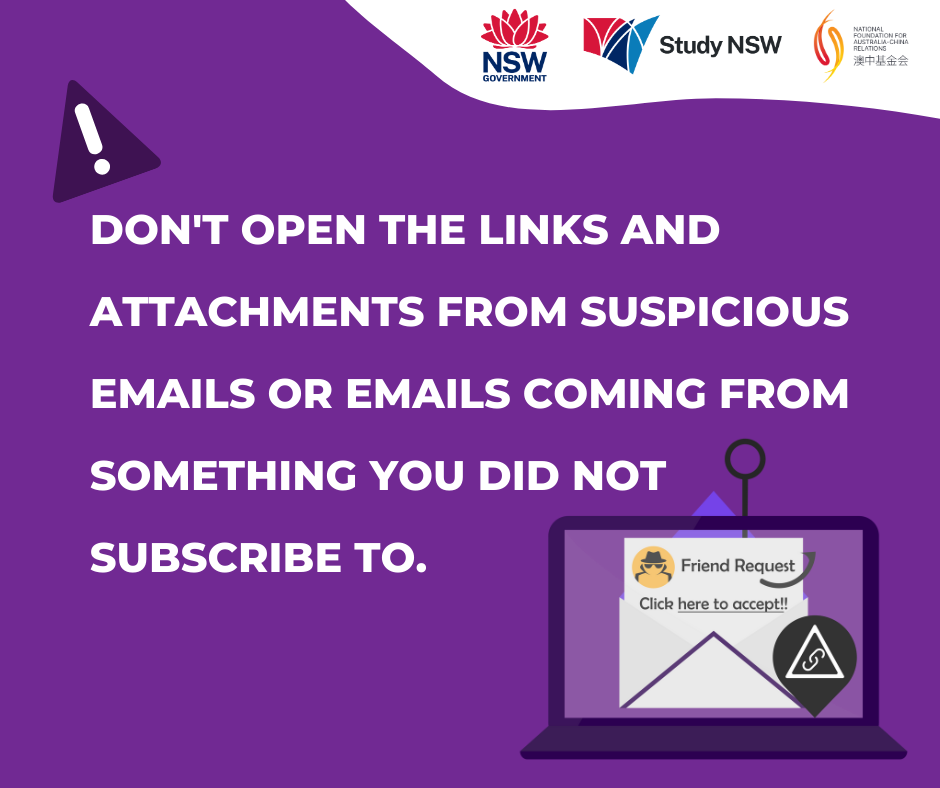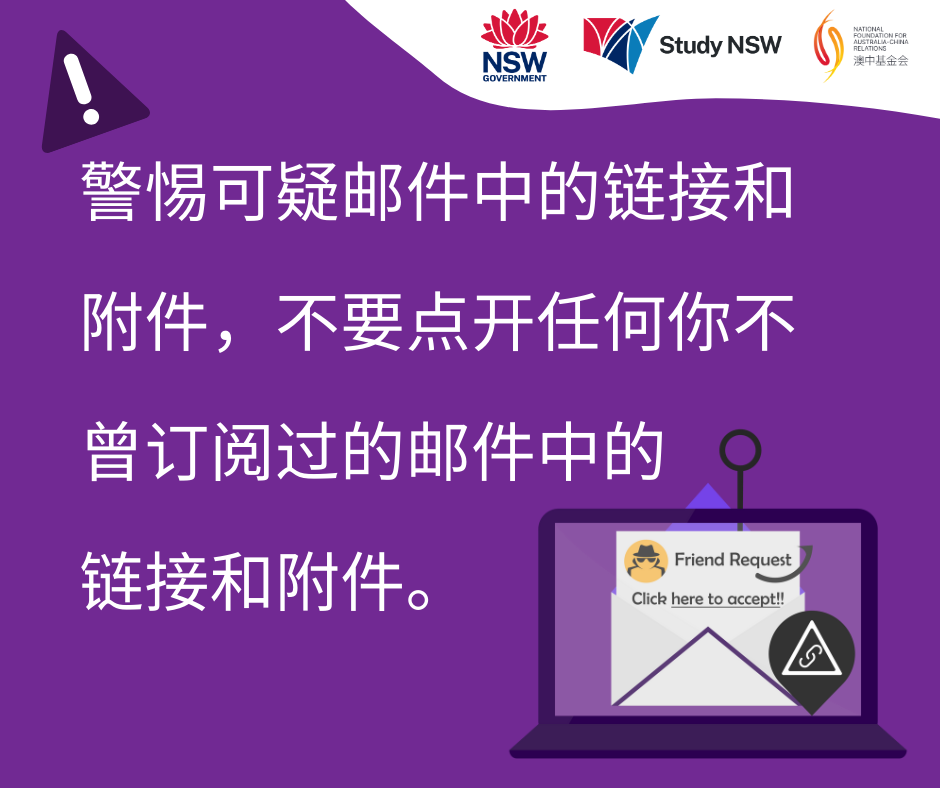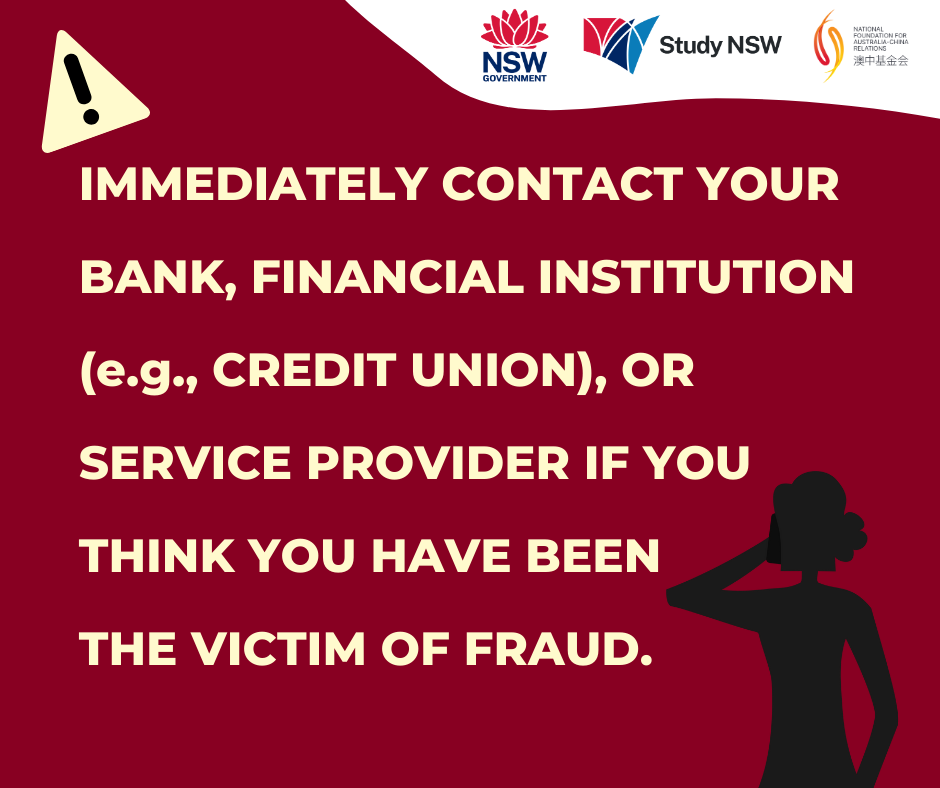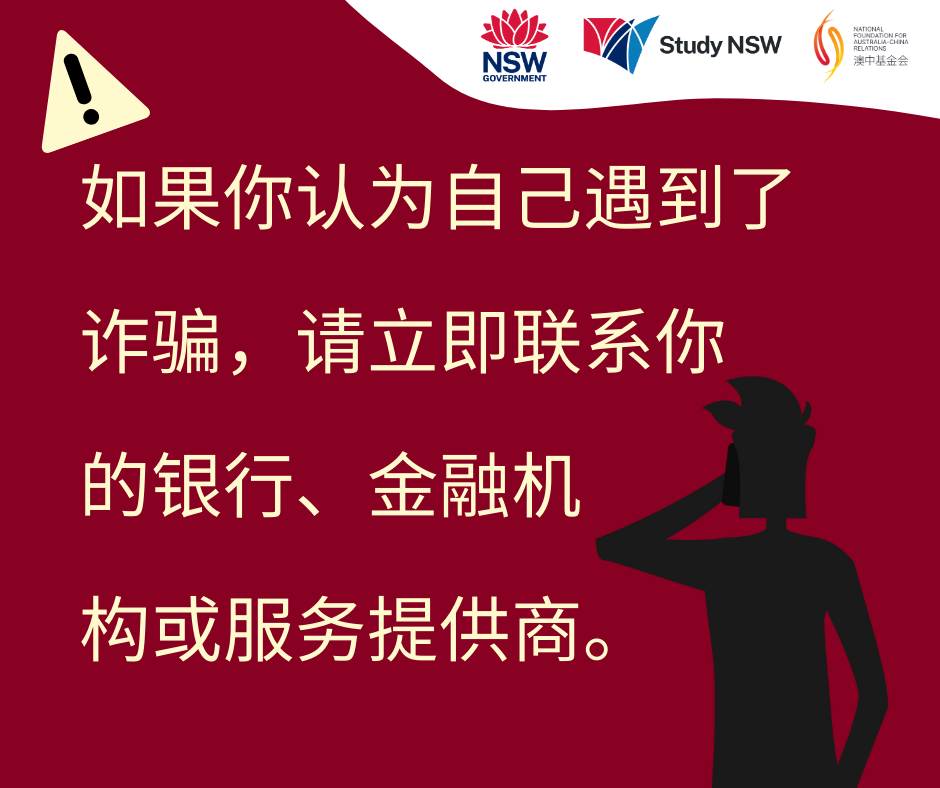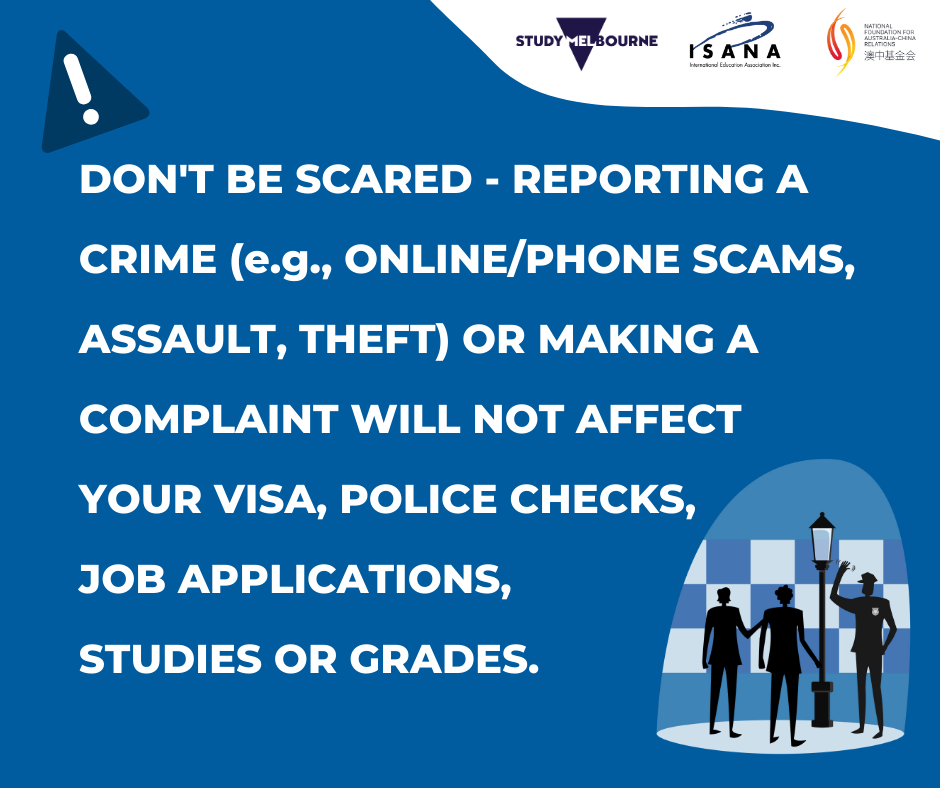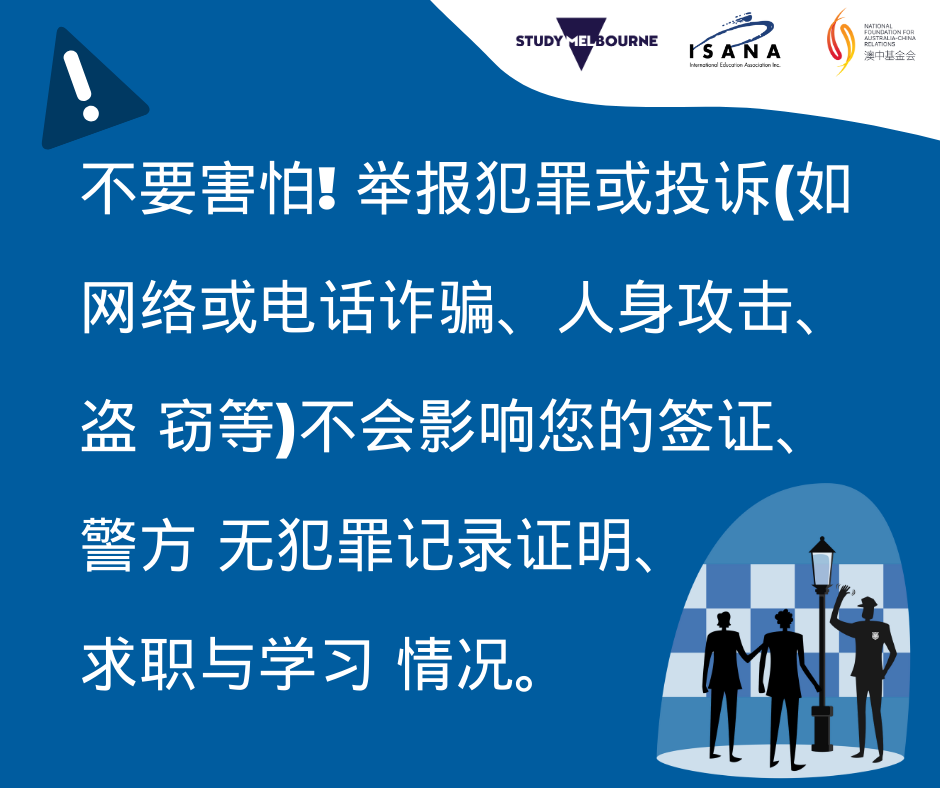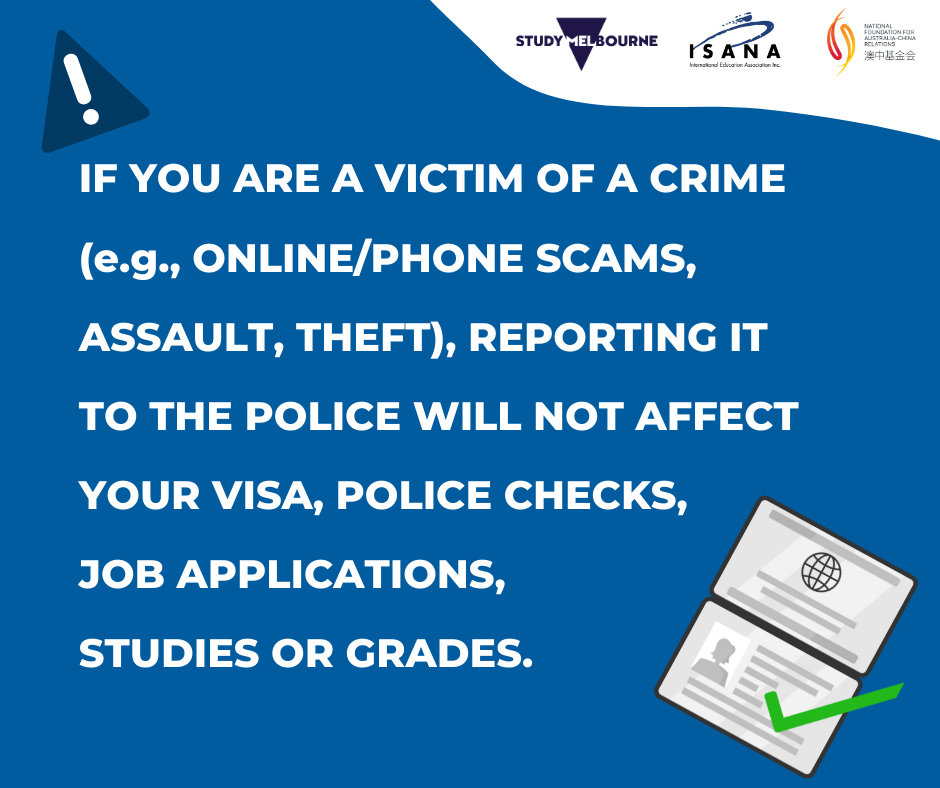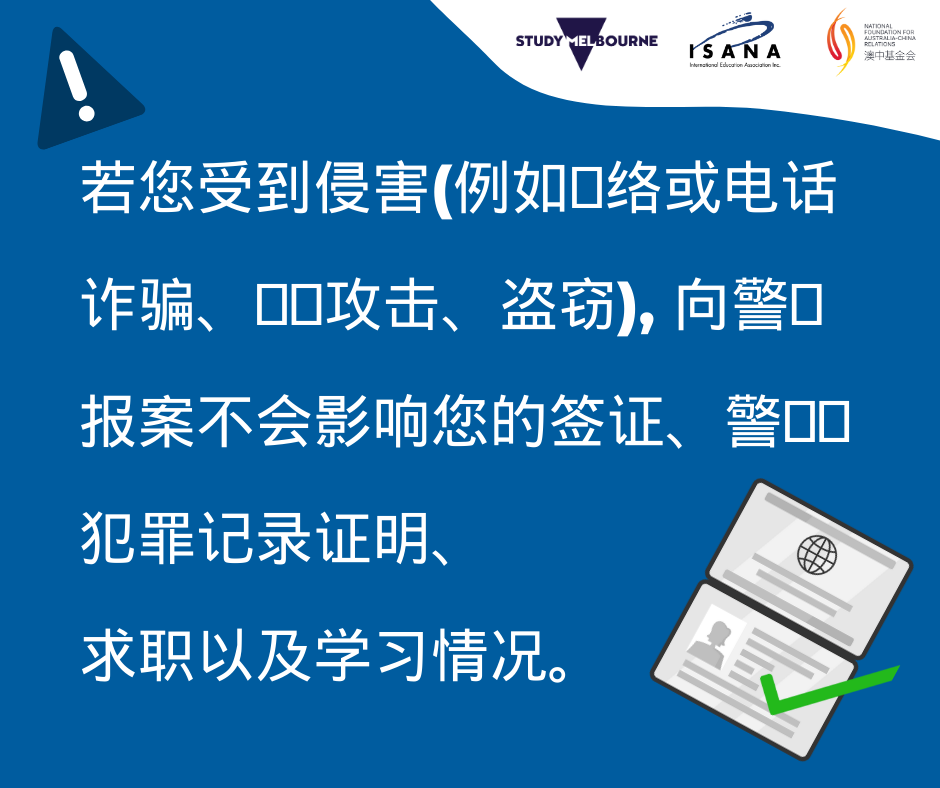It seems that cyber security is top of mind for most people across Australia, particularly given large-scale hacks that have targeted major companies like Optus and Medibank in recent history. Unfortunately, many international students have found themselves right in the middle of these incidents, with thousands having been informed their data was breached in some way.
So, how do you protect yourself when you’re away from home, speak a foreign language and aren’t always sure what’s official and who’s trustworthy? We’re here to help you answer those exact questions, with the help of handy tips for international students from Contact Points. Read on to learn more about the most common types of scams, the warning signs and our cyber security tips on how to protect yourself.
Common types of online scams in Australia
Agency scams
Most Australian universities or institutions rely on education agents to recruit students for them. Agents are paid on commission – for every student recruited, they get a fee. As a result, scammers will sometimes pose as agents in an attempt to get you to reveal personal information or financial details. Always check to see if they are
Warning signs
- Charge you large amounts to make an application.
- Make a fraudulent application and then disappear.
- Advise you to choose a particular university or institution because that university or institution pays the agent more.
- Downplay the amount of English you will need to know to complete your degree.
Phishing scams
In phishing scams, hackers will pose as official authorities from entities like banks, government departments or telecommunications companies. They may send you emails, text messages, social media messages, or even call you on the phone. Usually, the scammer will encourage you to reveal personal information under seemingly legitimate pretences. For example, they might say there was suspicious activity in your bank account and they want to resolve the issue for you.
Warning signs
- You receive an email, text message, phone call or social media message from a user claiming to be an official organisation but the email address, phone number or username doesn’t look legitimate.
- The message doesn’t address you by name.
- The message contains spelling and/or grammatical errors.
Rental scams
In rental scam scenarios, someone will pretend to lease you a property or a room in a shared house to steal your money (e.g. they will often get you to send them money as a “bond” to secure the accommodation). PayID scams via Facebook Marketplace are also common. Scammers will target sellers advertising items such as home goods, furniture or even rentals, claiming they can pay using PayID.
Warning signs
- The rent is a lot cheaper than other similar accommodation in the area.
- You are asked to sign a lease or pay a bond or deposit before you have seen the property.
- The landlord or agent makes excuses that you can’t view the property.
- The landlord or agent requests money via money transfer.
- For payID scams, the buyer won’t be able to pick up the item now but can transfer via payID now.
Tuition fee scams
When it comes to tuition fee scams, the scammers will generally contact you virtually or in person, claiming that they are from government agencies and request payment of an “international student tariff” with the threat that your student visa will be cancelled. Others claim that they’re third-party agents who represent educational institutions.
Warning signs
- Offer you extremely low prices or significant discounts.
- Say they work directly for a particular institution without any form of official identification.
- Be vague on terms and conditions, contact details and their head office location.
- Have inflexible payment options, like demanding payments immediately, in full or only by electronic funds transfer or a wire service.
AI scams
Using the latest AI technology, scammers will scan a recording to create a clone to mimic a real voice. They will then use this recording to impersonate the voices of people we may recognise to call you and ask for money, bank details or personal information. You can read more about AI scams and voice cloning here.
Warning signs
- Use words or phrases they wouldn’t usually say.
- Seems out of character.
- Sounds robotic or uses unnatural pauses.
- A sense of urgency or unwillingness to explain.
Australian Taxation Office (ATO) scams
As an international student, if you’re studying in Australia for more than six months, you’ll be regarded as an Australian resident for tax purposes. There’s a lot to understand when it comes to tax as an international student, but, importantly, you need to be wary of emails, phone calls and text messages claiming to be from the ATO. Visit the ATO website for the latest scam alerts to be aware of.
How to stay safe online
There are plenty of ways to protect yourself against online attacks. Let’s take a look at some of the simplest and most effective techniques to avoid online scams and enhance cyber safety for students:
Be aware
The first step is familiarising yourself with the various scams that are out there. By informing yourself of the potential dangers, you’ll be better able to safeguard yourself against them.
Don’t open suspicious messages or click sketchy links
If you receive contact from an unknown user, don’t open it. You can always verify the validity of the email address or phone number by doing an online search. If no matches are found, delete the email/message as it is probably a scam.
Always use strong, unique passwords
Try to use passwords that are hard to guess; don’t include any personal information such as name, surname, date of birth, etc. You should also try to use different passwords for different platforms to increase security. Keep your passwords and PINs in a safe place in case you forget them.
Use two-factor authentication (2FA)
Take your security to the next level by using two-factor authentication. This means that, in addition to your login details (like username and password), you’ll have an extra sign-in step. Examples could include having a verification code texted to you or answering a security question.
Be wary of unusual requests
If someone is asking you to reveal very personal details, send large amounts of money or do anything else that seems strange, it’s likely a scam. Don’t reveal any of your personal information, do not send money and report it immediately.



